Episodes
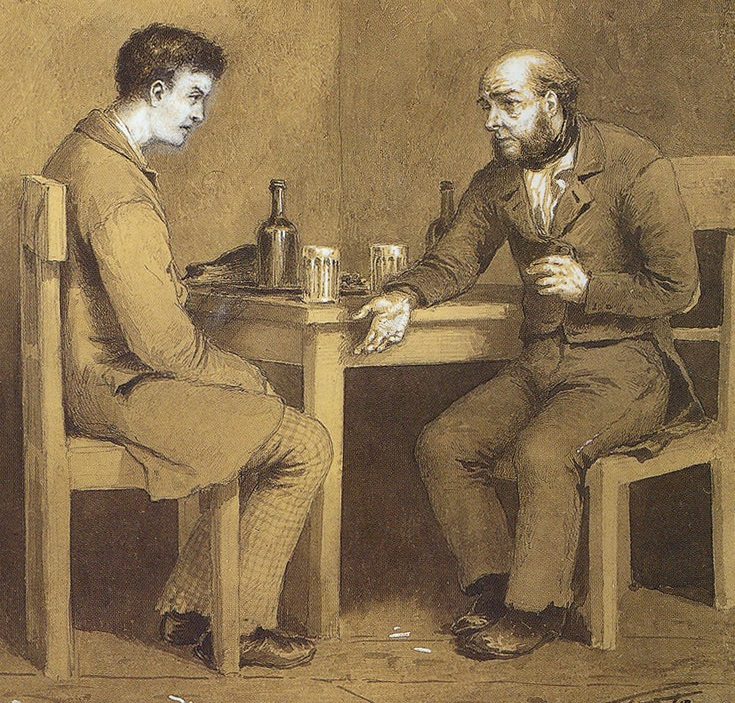
Tuesday Apr 11, 2017
Tuesday Apr 11, 2017
“What do you think, would not one tiny crime be wiped out by thousands of good deeds?” asks a student as he considers murder as a road to justice. If one death could mean liberation for many, why not kill? For him it's just a hypothetical question, but at a nearby table Radion Raskolnikov listens, takes in the argument, and later kills.
In Crime and Punishment, Fyodor Dostoevsky considers what happens after the blood is shed: the confusion, the remorse, the justifications, the anguish, and finally in Raskolnikov's case redemption. Dr. Thaddeus Kozinski, Academic Dean and Associate Professor of Philosophy and Humanities here at Wyoming Catholic College has been reading Crime and Punishment with our senior class. Inthis podcast, he shares his and their insights into this exploration of the human heart.
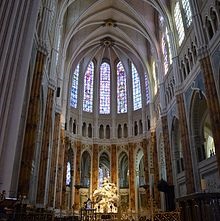
Tuesday Apr 04, 2017
Gothic Cathedrals: The Architecture of Contemplation with Dr. Jason Baxter
Tuesday Apr 04, 2017
Tuesday Apr 04, 2017
Gothic cathedrals are certainly wonders of architectural imagination and engineering ingenuity. But, according to Dr. Jason Baxter, Wyoming Catholic College’s Assistant Professor of Fine Arts and Humanities they are far more than that.
"The Gothic Cathedral," says Dr. Baxter, "is architecture of contemplation. Born in the great age of the masters of the interior life, the cathedral gave physical shape to contemplation, but it also invited it, incited it, evoked it, performed it within. In a word, it created silence, a richness of experience that is wordless only because it is too deep for words."
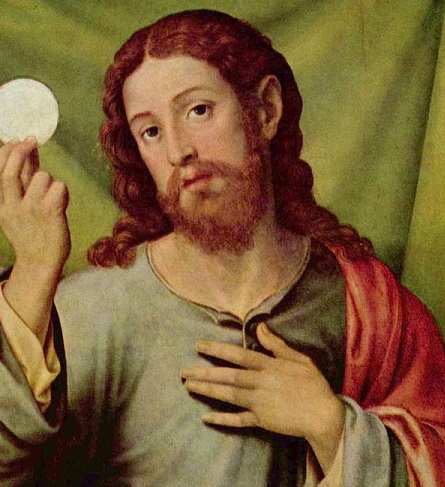
Tuesday Mar 28, 2017
Sacred Signs: On the Physical Side of Being Spiritual with Dr Kent Lasnoski
Tuesday Mar 28, 2017
Tuesday Mar 28, 2017
“The liturgy,” wrote Fr. Romano Guardini, “is not a matter of ideas, but of actual things, and of actual things as they now are, not as they were in the past.” In order to understand the liturgy, he went on, we need to “discern in the living liturgy what underlies the visible sign, to discover the soul from the body, the hidden and spiritual from the external and material.”
Guardini was one of the towering Catholic intellectuals of the twentieth century and a major influence on the thinking of Pope Benedict XVI, Pope Francis, and philosopher Josef Pieper. Yet in 1911, Guardini, for all his erudition, wrote a little book entitled Sacred Signs in which he gently and simply explained this connection between the material stuff of the Mass and the inner world of the spirit.
Dr. Kent Lasnoski, Assistant Professor of Theology at Wyoming Catholic College, received his Ph.D. from Marquette University, where he studied the theology of marriage and sexual ethics, that is, things both spiritual and physical. He has been teaching Guardini’s Sacred Signs to our freshmen and shares both his own and his students insights on the physical side of spirituality.
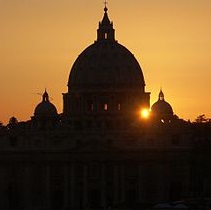
Tuesday Mar 21, 2017
The Pope, Authority, and “Religious Assent” with Dr. Jeremy Holmes
Tuesday Mar 21, 2017
Tuesday Mar 21, 2017
It’s a terribly misinformed, but common anti-Catholic trope: “Catholics,” it is said, “have to believe everything the pope says.”
Catholics do not have to believe “everything the pope says.” But, on the other hand, the Church teaches in Lumen Gentium, Vatican II’s Dogmatic Constitution on the Church, “In matters of faith and morals, the bishops speak in the name of Christ and the faithful are to accept their teaching and adhere to it with a religious assent.” So while we don’t have to believe “everything the pope says,” when he teaches us as pope, Catholics are conscience bound, to accept his teaching and adhere to it with “a religious assent.”
What does that mean on a practical level as we hear or read papal sermons, encyclicals, exhortations, and other writings? What if we sincerely disagree with him? How do we sort it out?
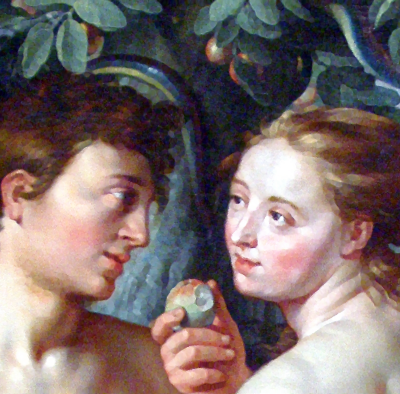
Tuesday Mar 14, 2017
Paradise Lost: A Conversation with Dr. Glenn Arbery
Tuesday Mar 14, 2017
Tuesday Mar 14, 2017
John Milton’s Paradise Lost spans all of history from the fall of Satan and his angels to the creation of Adam and Eve, to the fall of man, to the cross of Christ, to the Second Coming. In A Preface to Paradise Lost, Milton scholar C. S. Lewis wrote, “Paradise Lost records a real, irreversible, unrepeatable process of the history of the universe; and even for those who do not believe this, it embodies…the great change in every individual soul from happy dependence to miserable self-assertion and thence either, as in Satan, to final isolation, or, as in Adam, to reconcilement and a different happiness.”
This week's guest, Wyoming Catholic College president Dr. Glenn Arbery, has taught Paradise Lost for many years and is currently working through the poem with our juniors.
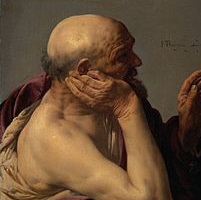
Tuesday Mar 07, 2017
The Roots of Philosophy: Theories about Everything
Tuesday Mar 07, 2017
Tuesday Mar 07, 2017
Everything in this world changes and yet at the same time, everything seems to remain the same. That observation is hardly new. In fact, between about 625 BC and 450 BC the question of the nature of reality and the nature of motion and change were the primary focuses of the great thinkers of the era, thinkers we call the pre-Socratic philosophers.
This week, Dr. Michael Bolin, Assistant Professor of Theology and Philosophy who has been teaching the pre-Socratics to our freshmen here at Wyoming Catholic discusses these earliest philosophers and the ways in which they can help us understand our world and culture today.

Tuesday Feb 28, 2017
Silence and Sacred Space
Tuesday Feb 28, 2017
Tuesday Feb 28, 2017
We live, as many have commented, in a noisy world. Yet the great saints are unanimous about the need for silence if we are going to love God and our neighbors. St. Teresa of Calcutta, for example, said, “We need to find God, and he cannot be found in noise and restlessness. God is the friend of silence. See how nature - trees, flowers, grass- grows in silence; see the stars, the moon and the sun, how they move in silence... We need silence to be able to touch souls.”
On March 10-11, Wyoming Catholic College will host “Silence And Sacred Space: A symposium on silence in the modern world” at St. John Cantius Church in Chicago. The speakers will be college president Dr. Glenn Arbery, Associate Professor of Humanities Dr. Virginia Arbery, and Assistant Professor of Fine Arts and Humanities Dr. Jason Baxter.
In anticipation of the event, Dr. Virginia Arbery was interviewed by Patrick McCormick on Relevant Radio in Chicago. Relevant Radio (relevantradio.com) was kind enough to give us permission to rebroadcast that interview in this podcast.

Tuesday Feb 21, 2017
Tuesday Feb 21, 2017
From the time he was a child, C. S. Lewis was steeped in what we today call “The Great Books” including Chaucer, Spencer, John Milton, and—the subject of our conversation today—Dante.
Lewis read Dante’s Inferno in Italian as a teenager. He read Purgatorio in the hospital during World War I as he recovered from wounds he received in the trenches. Then some fifteen years later—once he gave up his atheism, but before he embrace Christianity—Lewis finally read Paradiso.
This past February 3rd, Dr. Jason Baxter, Assistant Professor of Fine Arts and Humanities at Wyoming Catholic College delivered a lecture entitled “Evil Enchantment and The Weight of Glory: What Dante Taught C.S. Lewis about Poetry.” Dr. Baxter’s expertise includes not only Dante and C. S. Lewis, but all of the philosophers, poets, and writers Lewis studied and loved.
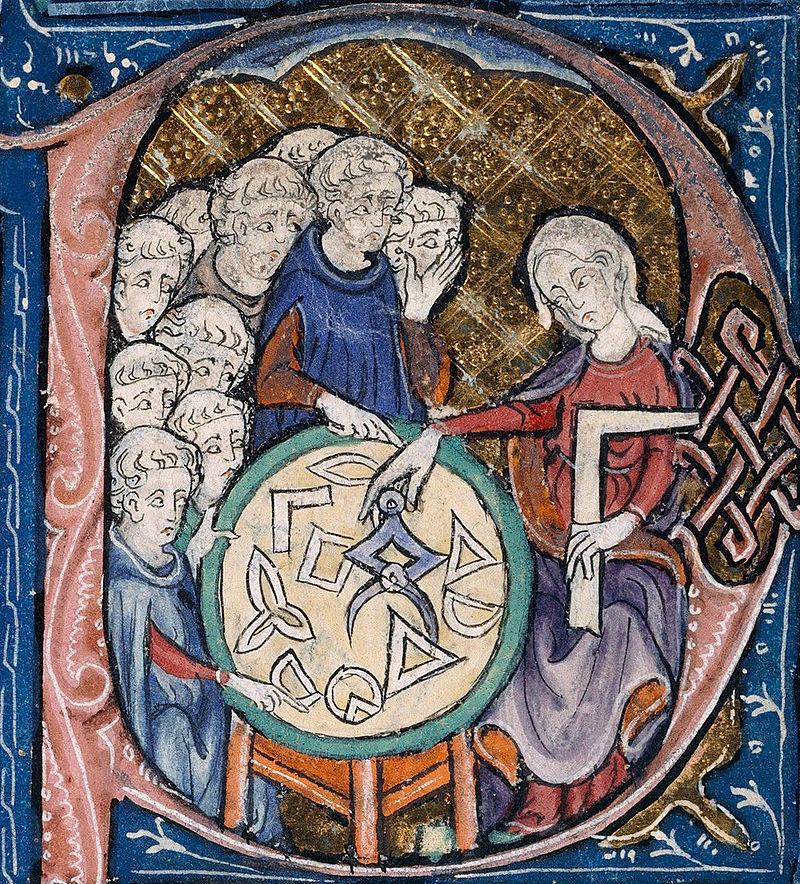
Tuesday Feb 14, 2017
Euclid and the Beauty of Numbers with Dr. Scott Olsson
Tuesday Feb 14, 2017
Tuesday Feb 14, 2017
For most of us mathematics is a wholly practical field of study. It allows us to count and to account. How much material do I need for my home improvement project? What’s my checkbook balance? Is my business profitable? How do I make a recipe for four into a recipe for six? Is it wise to invest in this or that mutual fund? Yet mathematicians tend to have a far loftier view of their field, reflecting on the beauty and the wonder of numbers. “The mathematician does not study pure mathematics because it is useful,” wrote mathematician J.H. Poincare, “he studies it because he delights in it and he delights in it because it is beautiful.”
To help us to understand this fuller view of mathematics we are joined by mathematician and Associate Professor of Mathematics and the Natural Sciences at Wyoming Catholic College, Dr. Scott Olsson.
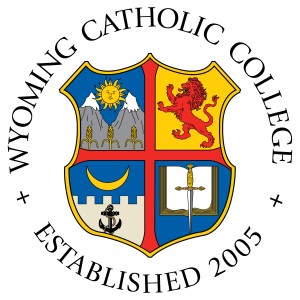
Monday Feb 06, 2017
Introduction to "The Great Books" with Dr. Thaddeus Kozinski
Monday Feb 06, 2017
Monday Feb 06, 2017
The 16th century English philosopher, statesman and scientist Francis Bacon famously stated, “Some books are to be tasted, others to be swallowed, and some few to be chewed and digested: that is, some books are to be read only in parts, others to be read, but not curiously, and some few to be read wholly, and with diligence and attention.”
Welcome to this the first and introductory podcast in Wyoming Catholic College’s weekly "After Dinner Scholar" series.
Each podcast will feature an interview with one of our professors who will introduce you to one of the books from the college’s integrated liberal arts curriculum, a book we believe should “be read wholly, and with diligence and attention.”
On this first podcast, we begin by asking: What are The Great Books? What makes them great? And why should they be “be read wholly, and with diligence and attention”?
To answer those questions, we’re joined by Dr. Thaddeus Kosinski. Dr. Kosinski is Associate Professor of Philosophy and Humanities at Wyoming Catholic College as well as our Academic Dean. Prior to earning his Ph.D. in Philosophy from The Catholic University of America, Dr. Kosinski earned a Masters in Liberal Arts studying the Great Books at St. John’s College Graduate Institute in Annapolis, Maryland.

